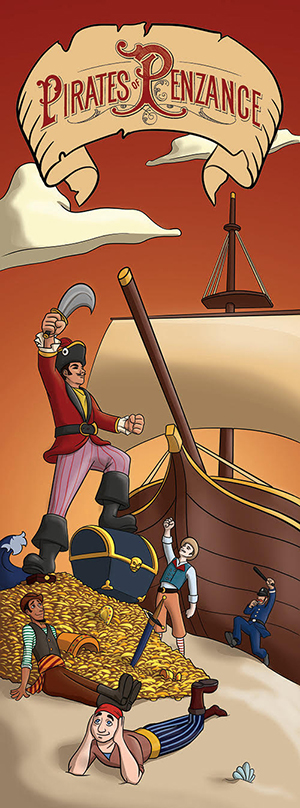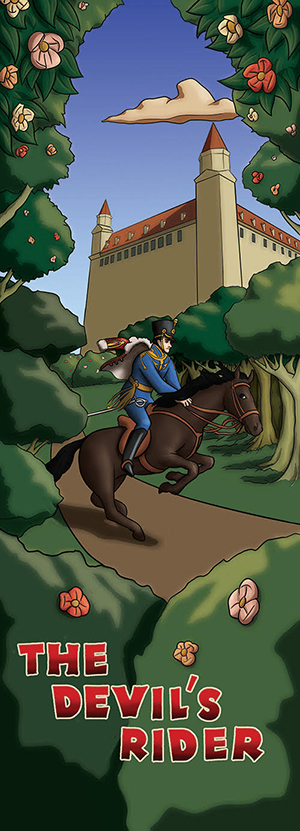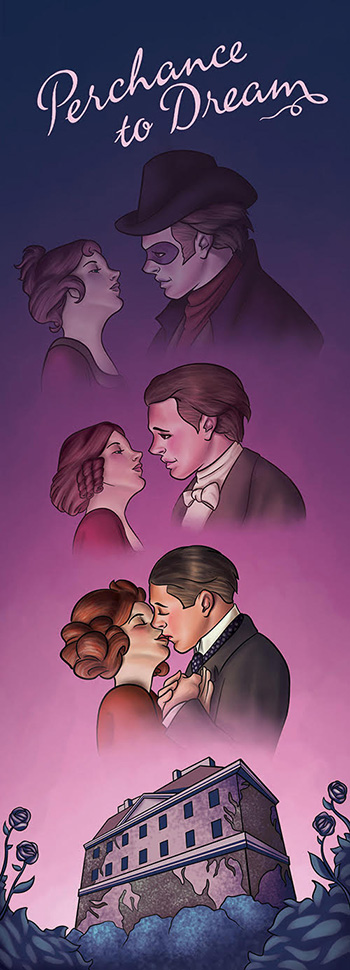by Kelly Ferjutz
Special to ClevelandClassical.com

We’ll get back to Pirates, but the three premieres are truly intriguing. Music in the Air opens July 11. The music is by Jerome Kern (everyone has heard of him) and the lyrics by Oscar Hammerstein II, the same Hammerstein who was responsible for South Pacific, which opens the season. The welding of music by Kern and words by Hammerstein became the longest running musical of 1932. It is one of several collaborations between the two men, the most famous of which is Showboat (1927).
In Bavaria, a young girl named Sieglinde (Sadie Spivey) receives a new song from her composer father (Ted Christopher), the words written by her boyfriend Karl (Adam Wells). The three head off for Munich to visit the publisher (Spencer Reese). This seems perfectly innocent on the surface, but being operetta, it won’t stay that way for long. One thing to be counted on, however, are the sterling songs by Kern & Hammerstein. Among them: “I’ve Told Ev’ry Little Star” and “The Song is You.” Steven Daigle stage directs, and Wilson Southerland conducts.
Following the Kern work is Emmerich Kálmán’s The Devil’s Rider (1932). Kálmán is almost a specialty of Ohio Light Opera, thanks to artistic director Steven Daigle, who has provided libretto translations for nearly all the composer’s works the company has presented. Set during the early 1800s, The Devil’s Rider is the 11th of Kálmán’s works to be presented by OLO. Did I mention that this is also an American premiere?
Not too many operettas concern themselves with the world-famous Spanish Riding School in Vienna, the home of the famous Lipizzaner stallions (which, sadly, will not be seen in the production this summer) that has been in existence since the late 1500s. Quite a few of the characters were based on real people, which created an inside joke of sorts with audiences of the time.

Once you’ve heard Kálmán’s lilting melodies, you won’t have any trouble believing him to be “the most successful operetta composer in the world” as declared in a New York newspaper 92 years ago. He is still performed in opera houses worldwide.

Once again, the team of Daigle, Byess, and Reese are in charge. Act I opens at Huntersmoon, the mansion of Sir Graham Rodney, in 1818, when highwaymen were likely to appear. Of course they do, and a famous necklace is stolen. When Act II opens, it is 1843, and the children of those we met in Act I are now the main characters. This connection between the generations will carry over through the next 90 years into the last scene. As confusing as the plot sounds, the show played for 1,020 performances in London — a great success.
And now — we come to The Pirates of Penzance (1879) with music by Arthur Sullivan and libretto by William Gilbert. Can there be anyone who has never heard of this delightful piece of nonsense? It has everything one could wish for in a stage work. Stage director is Ted Christopher, with conducting duties shared by J. Lynn Thompson and Wilson Southerland. Spencer Reese triples as choreographer, assistant stage director, and the role of Frederic, which he alternates with Alan Smith. Boyd Mackus portrays Major-General Stanley, and the role of his daughter Mabel is shared by Chelsea Miller and Kelly Curtin. Ted Christopher doubles as the Sergeant of Police.
Published on ClevelandClassical.com June 25, 2019.
Click here for a printable copy of this article


